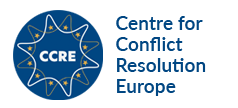In a world where conflicts can deeply impact the lives of children, “Mediation for Children” is a specialized mediation service designed to support and empower young individuals in resolving disputes and fostering positive relationships.
Mediation for Children is a unique and compassionate approach to conflict resolution, specifically tailored to meet the unique needs and developmental stages of children. The team of skilled mediators understands the challenges children face when navigating conflicts, and we are committed to providing a safe and supportive space where their voices are heard and their concerns are valued.
At the core of Mediation for Children is the belief that children have the capacity to actively participate in finding resolutions to conflicts that affect their lives. The mediators employ child-friendly techniques, utilizing age-appropriate language, creative activities, and interactive processes that engage children and encourage their meaningful involvement in the mediation process.
Mediation for Children covers a wide range of conflicts that children may encounter, including disputes with siblings, friends, classmates, or within the family unit. The mediators are experienced in facilitating discussions around various issues, such as sharing resources, bullying, communication breakdowns, and other challenges that children may face.
Through Mediation for Children, we aim to empower young minds, nurture their problem-solving skills, and foster empathy and understanding. The mediators create a safe and non-intimidating environment where children can express their thoughts, emotions, and needs freely. By actively listening and validating their experiences, we enable children to develop self-confidence, self-advocacy, and healthy communication skills.
Mediation for Children is not just about resolving conflicts in the present; it also equips children with valuable tools to navigate future challenges. Through the mediation process, children learn constructive ways to express themselves, develop empathy for others, and explore creative solutions. These skills can have a lasting impact, enhancing their social and emotional development and promoting healthier relationships throughout their lives.
We understand that children may require additional support during the mediation process, which is why the team of mediators is trained to work collaboratively with parents, educators, and other professionals involved in the child’s life. We prioritize the well-being and best interests of the child, ensuring a holistic and comprehensive approach to conflict resolution.
The Centre’s goal is to help you resolve actual or potential conflicts. CCRE programmes, training and services can provide crucial support for reducing the risks of conflict and litigation. To this end, the Centre is committed to equipping individuals, groups, and organisations to successfully address and resolve various forms of conflict.
Whatever the outcome of the process of resolving a particular conflict, the Centre believes the results for all parties can consistently include satisfaction with the process and an appreciation for training as well as utilising individuals who serve as neutrals to help individuals, groups and organisations address their particular circumstances and needs.
The process begins with an initial consultation where the mediator meets with the conflicted parties, either together or individually, to understand the nature and context of the conflict. This session helps set the ground rules for respectful communication and defines the scope and goals of the mediation.
The mediator guides the parties through a structured conversation, encouraging them to express their feelings, needs, and perspectives. Through active listening and constructive communication, the mediator helps parties gain a better understanding of each other's positions and uncover common ground.
In the final stage, the mediator assists the parties in crafting a mutually agreeable resolution. This agreement should address the concerns and needs of all parties, aiming for a win-win situation. The mediator ensures that the agreement is clear, realistic, and that all parties are committed to adhering to it.

The Advance Mediation training has been instrumental in giving me the skills to understand the role of a mediator, namely to be a facilitator and not a solution giver. I also learnt that people need to be heard and mediation creates a safe space where this can take place.


Copyright © 2023. CCR Europe. All rights reserved.
The emphasis placed on effective listening skills as part of the Mediation Training Course was most helpful. Improving this strength leads to more effective questions being asked by the Mediator which in turn often leads to a positive outcome for the affected parties